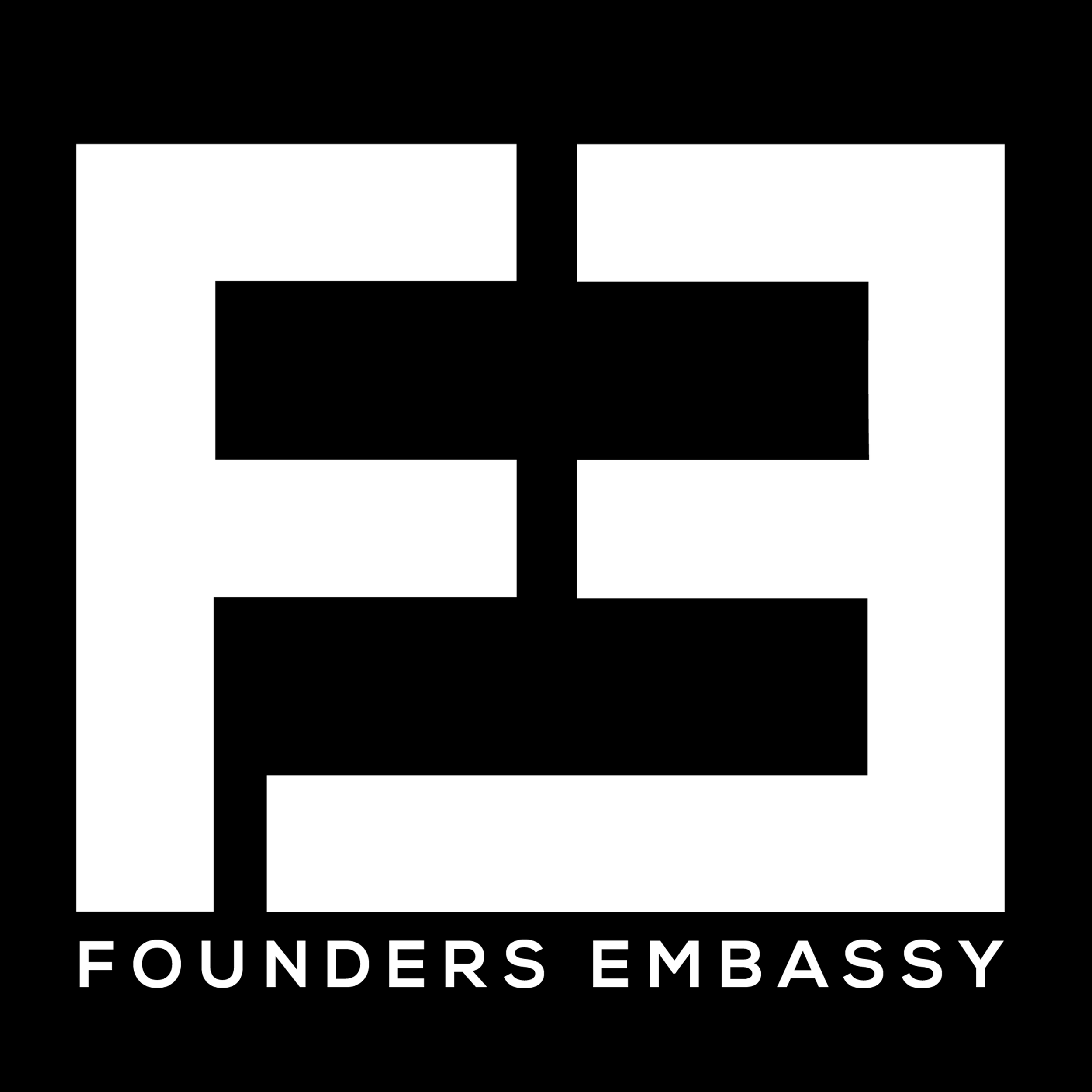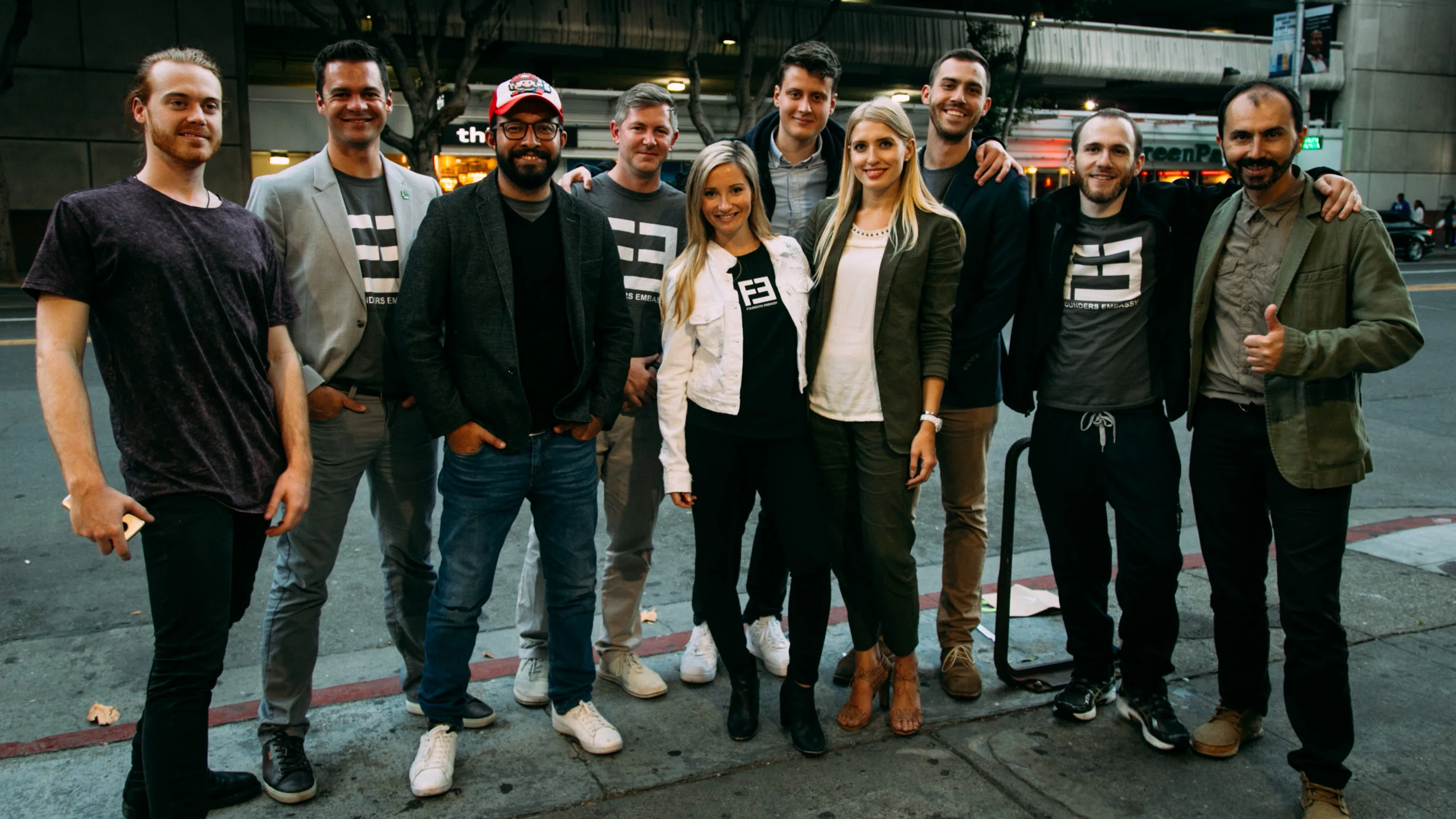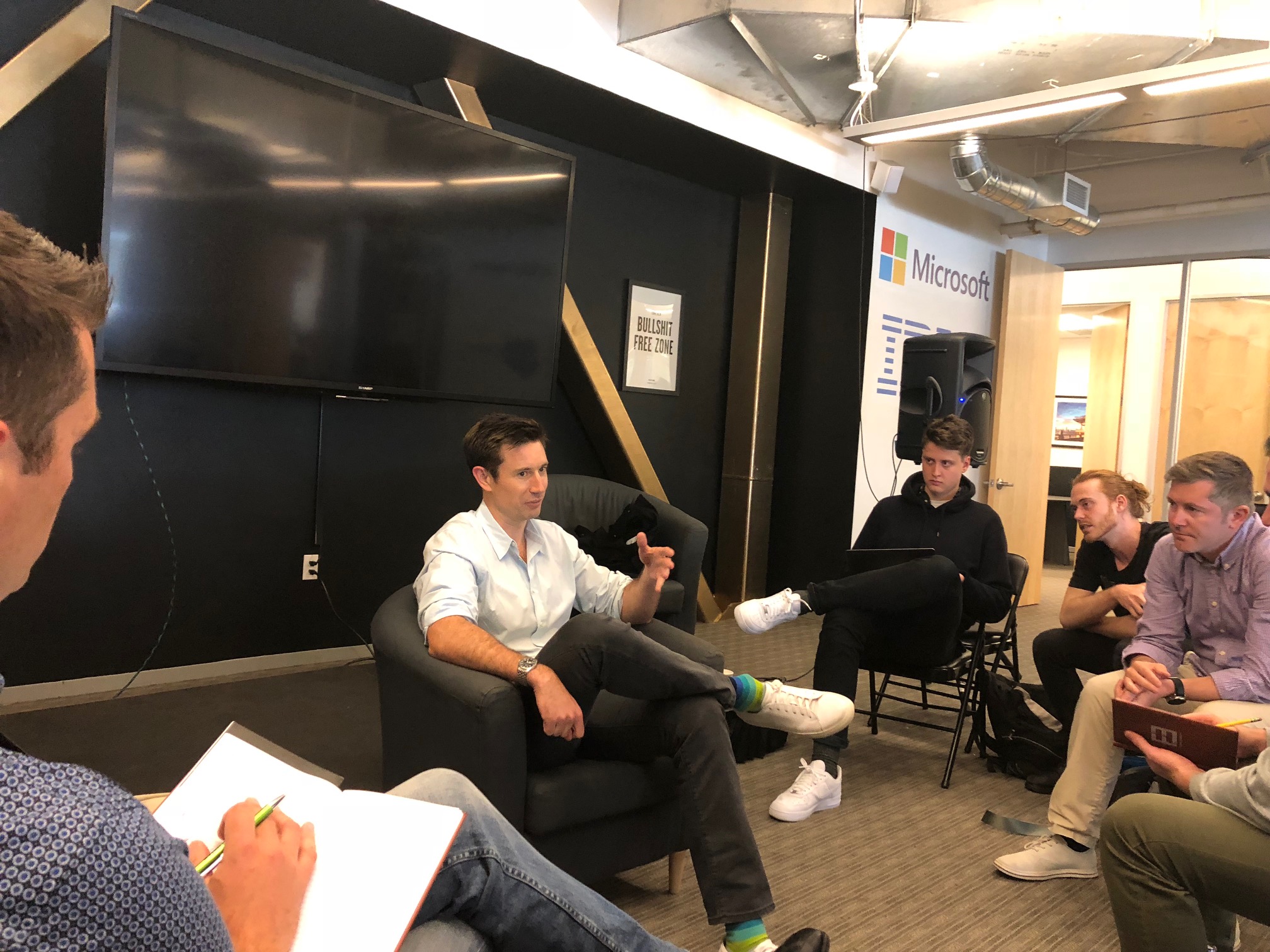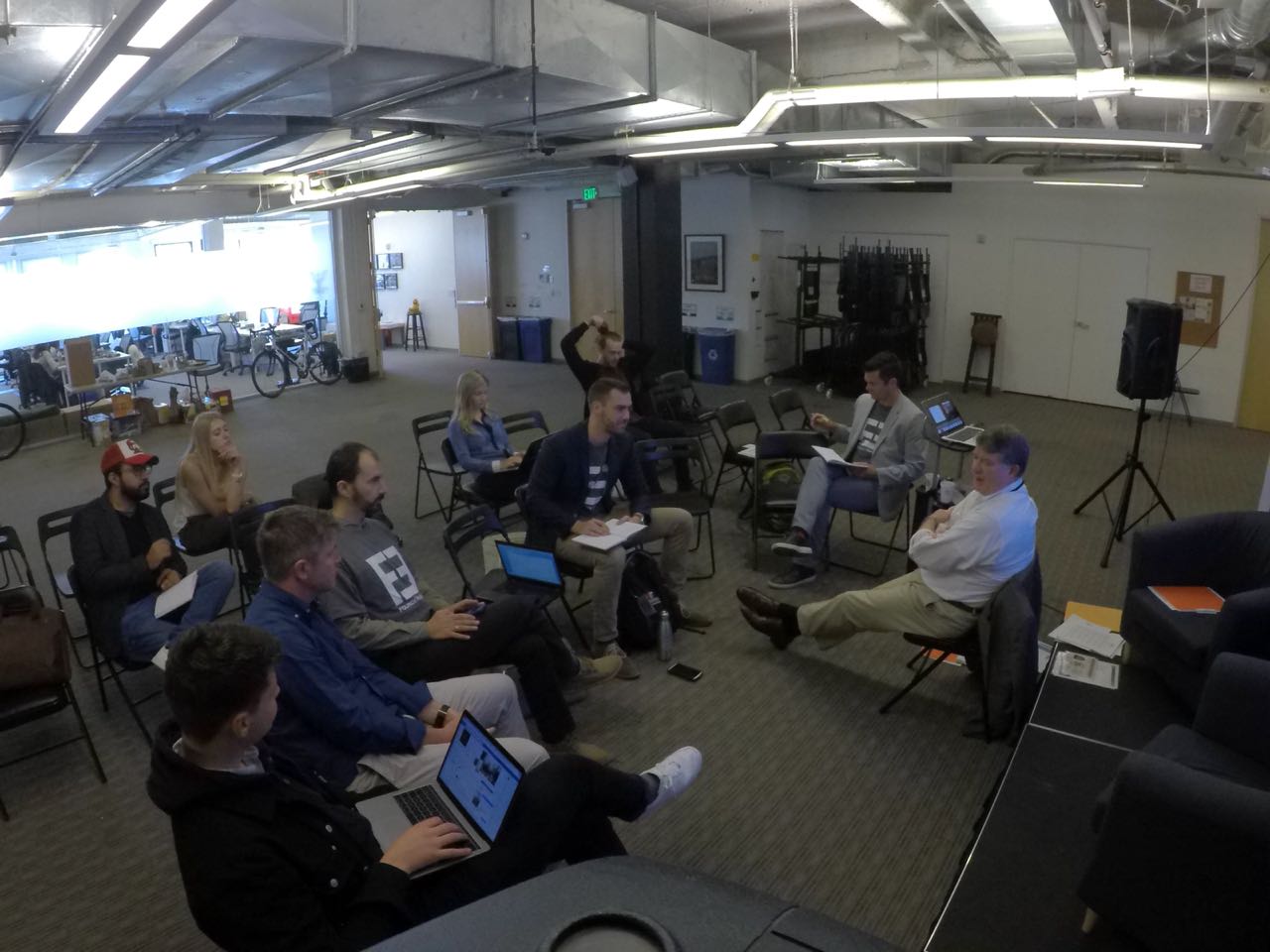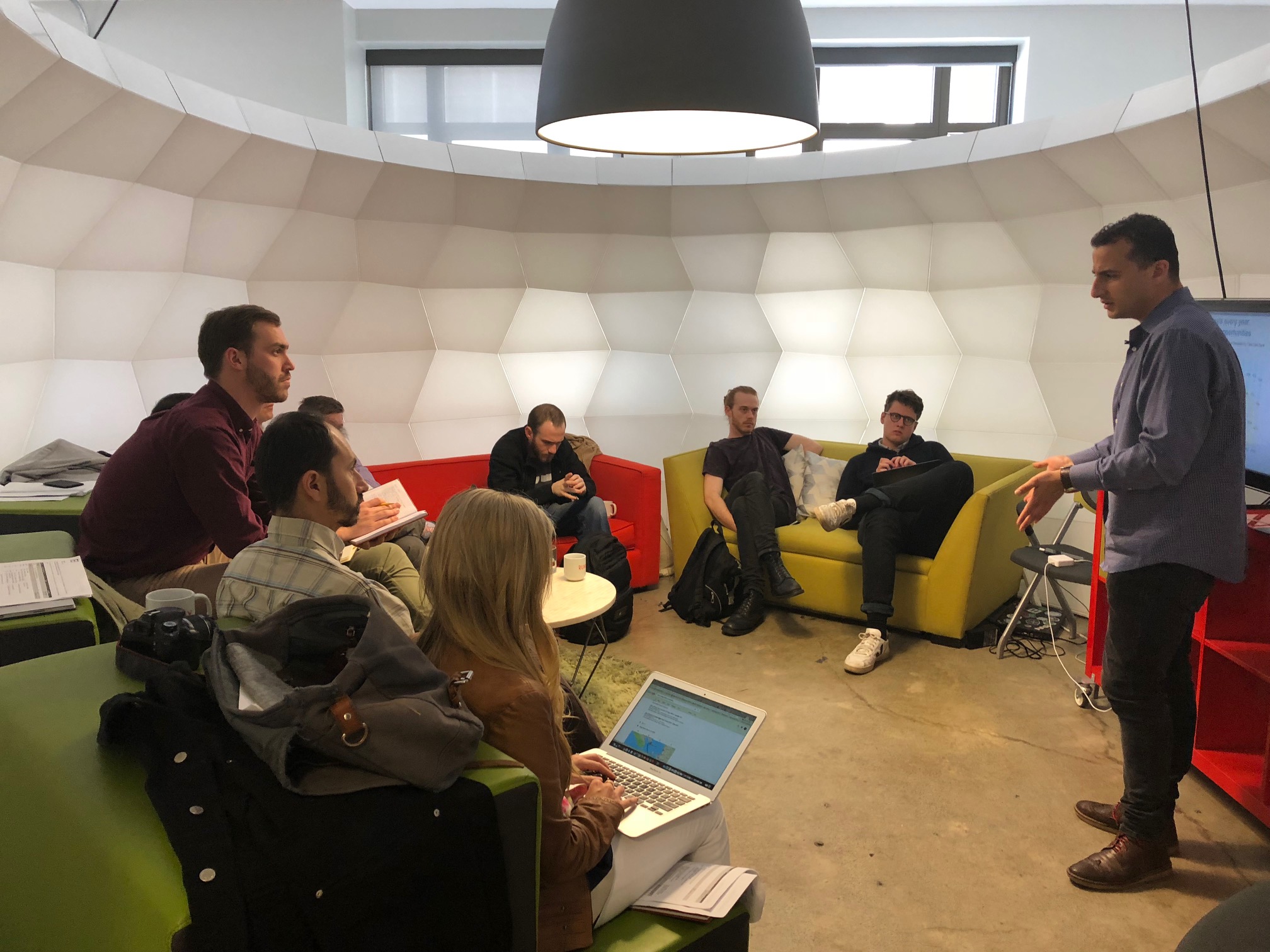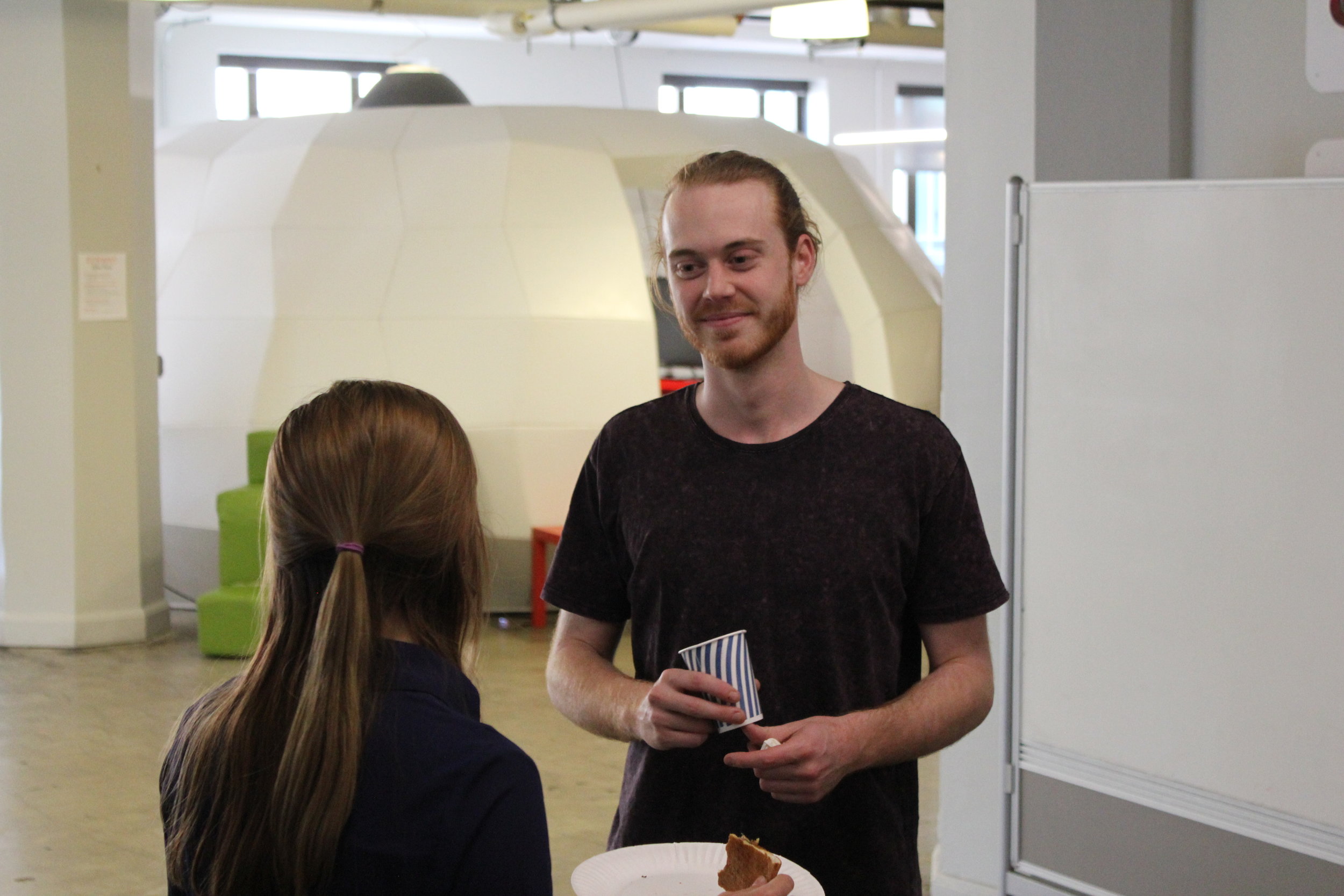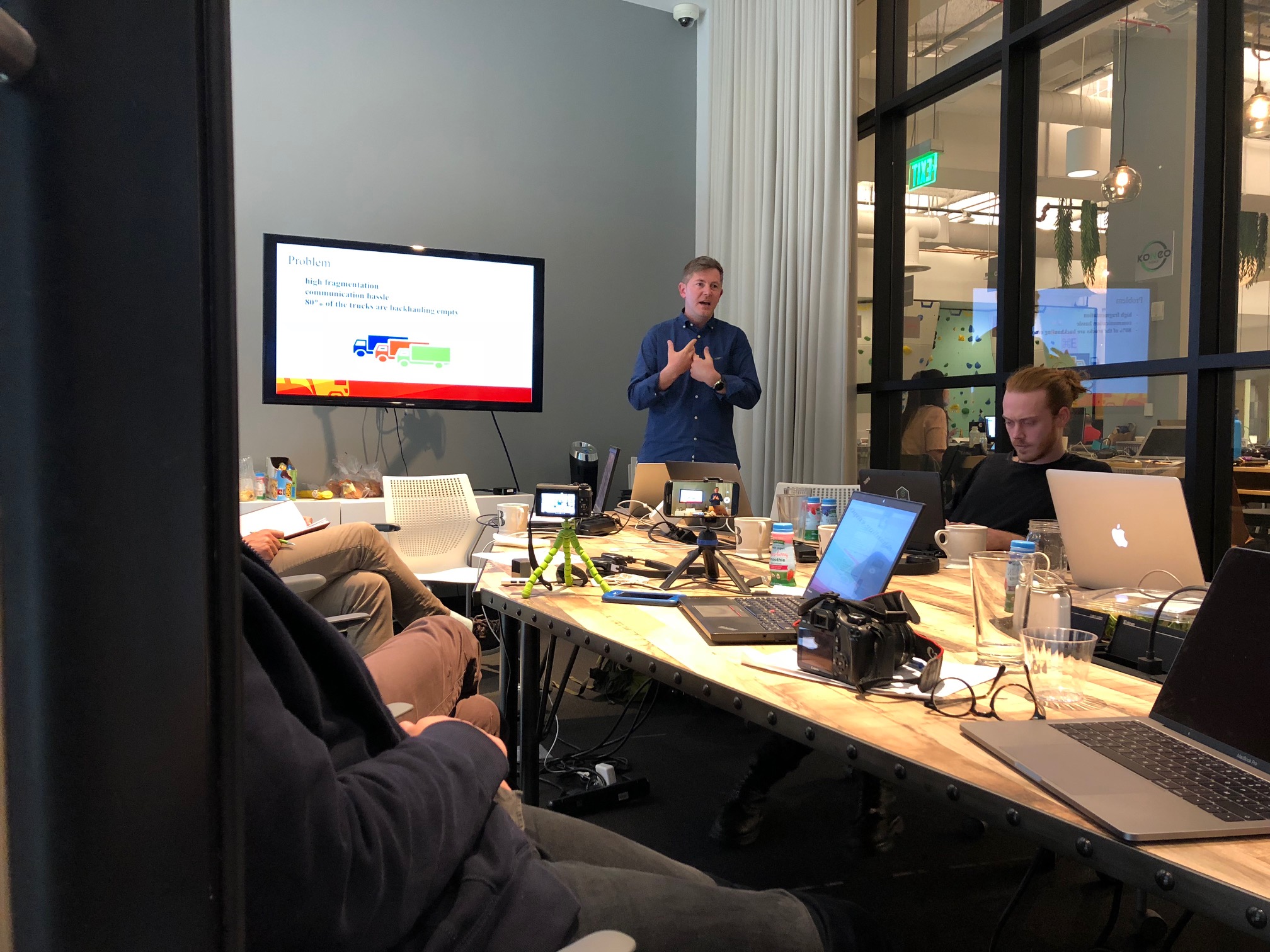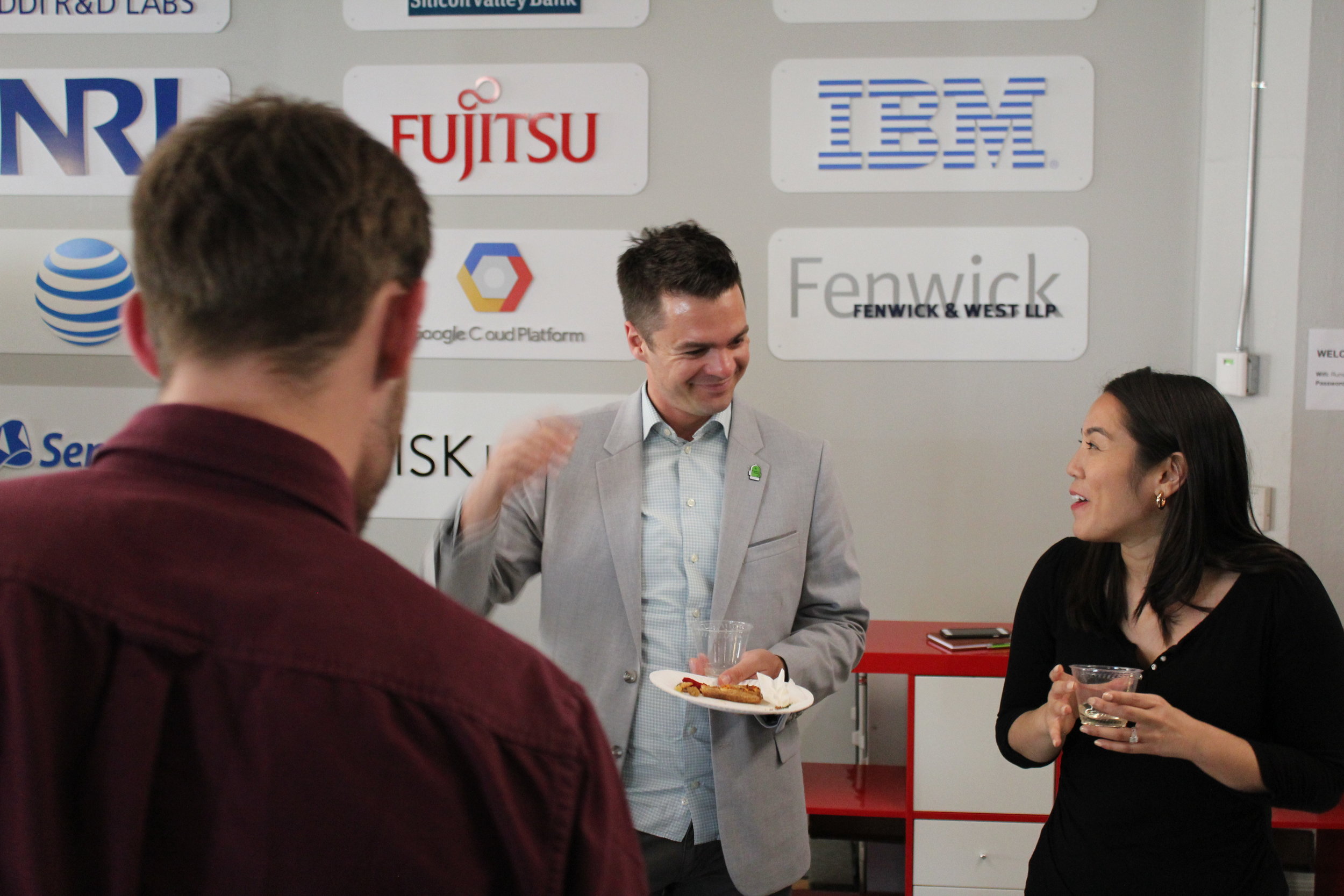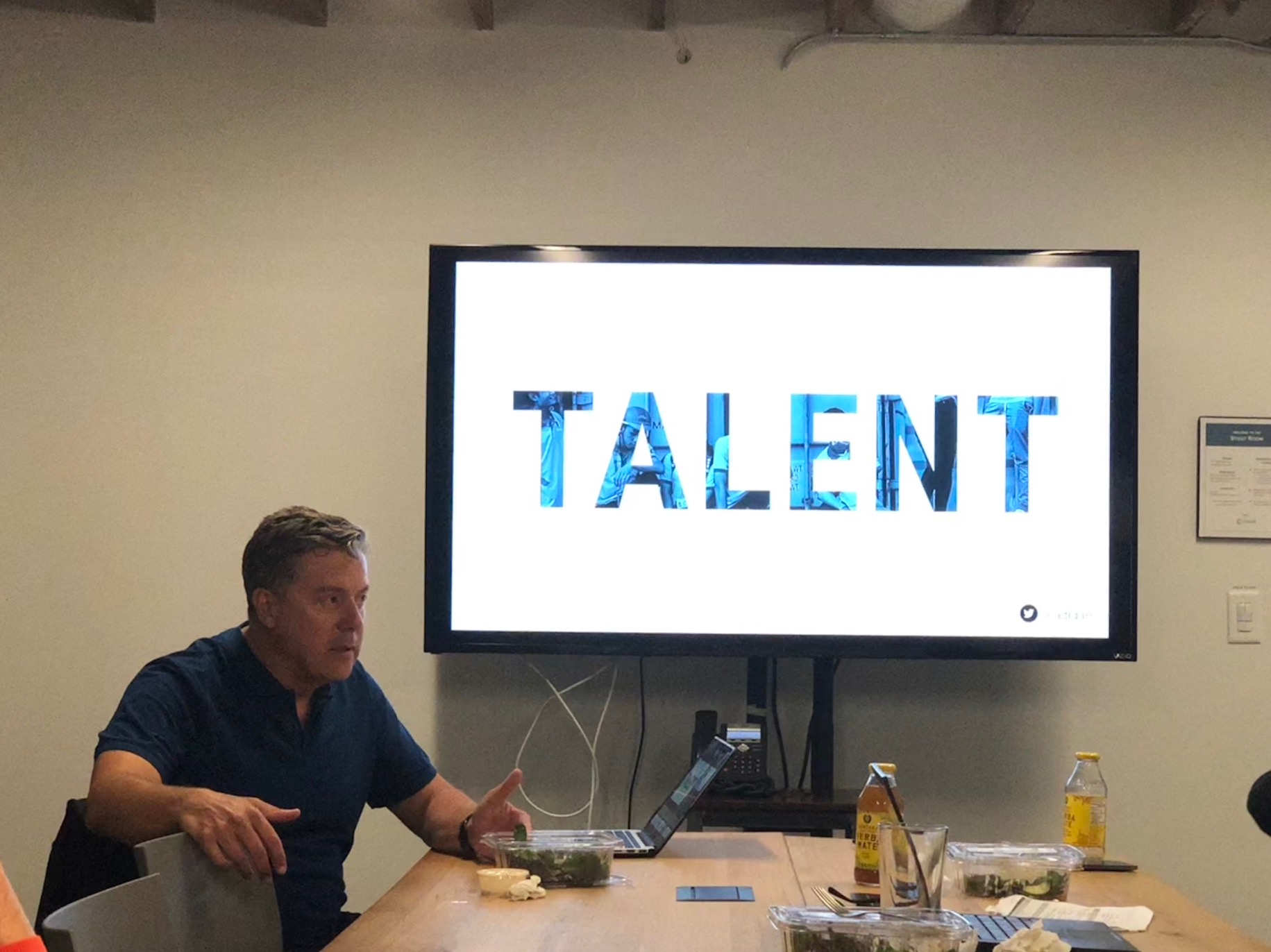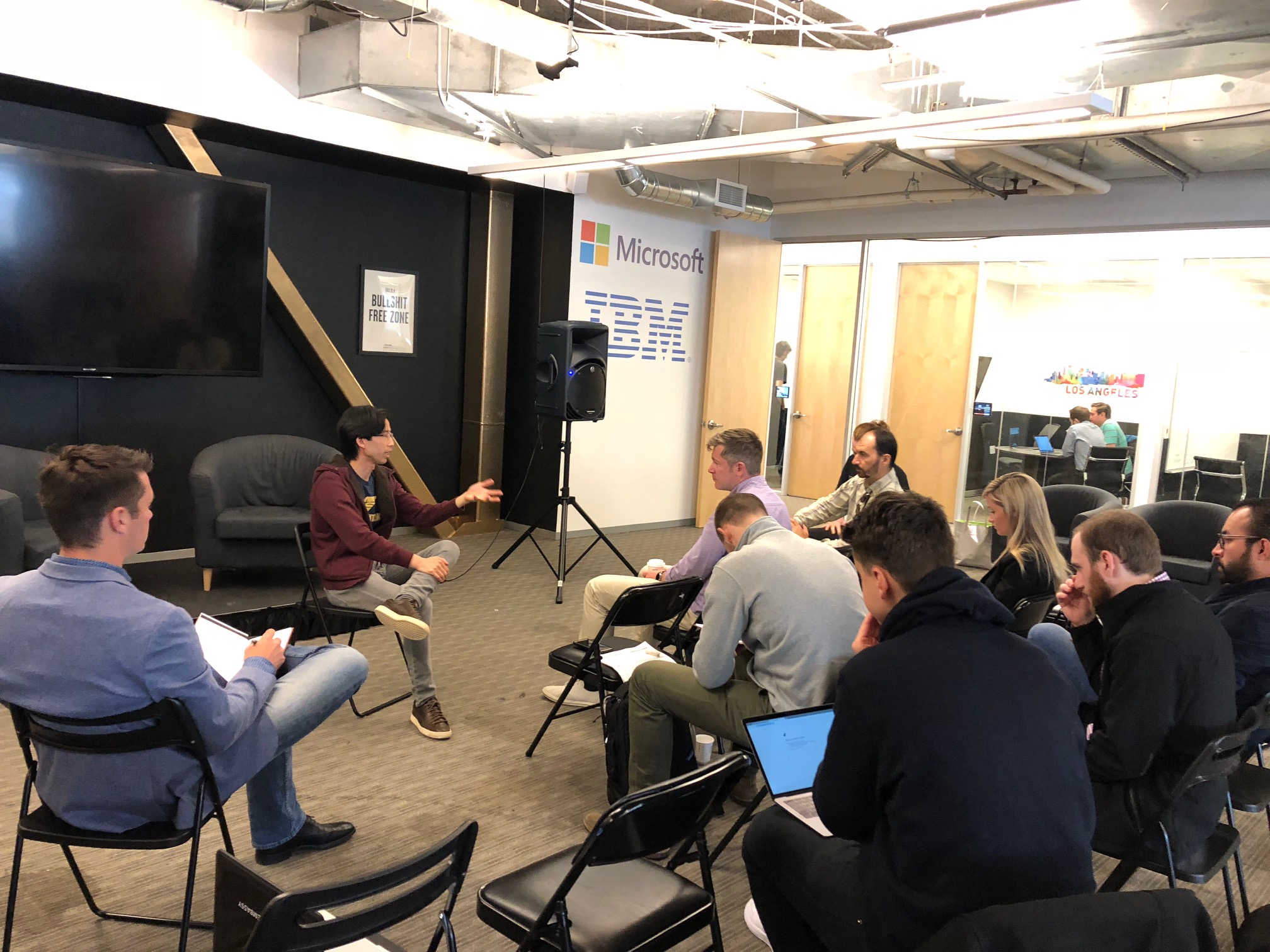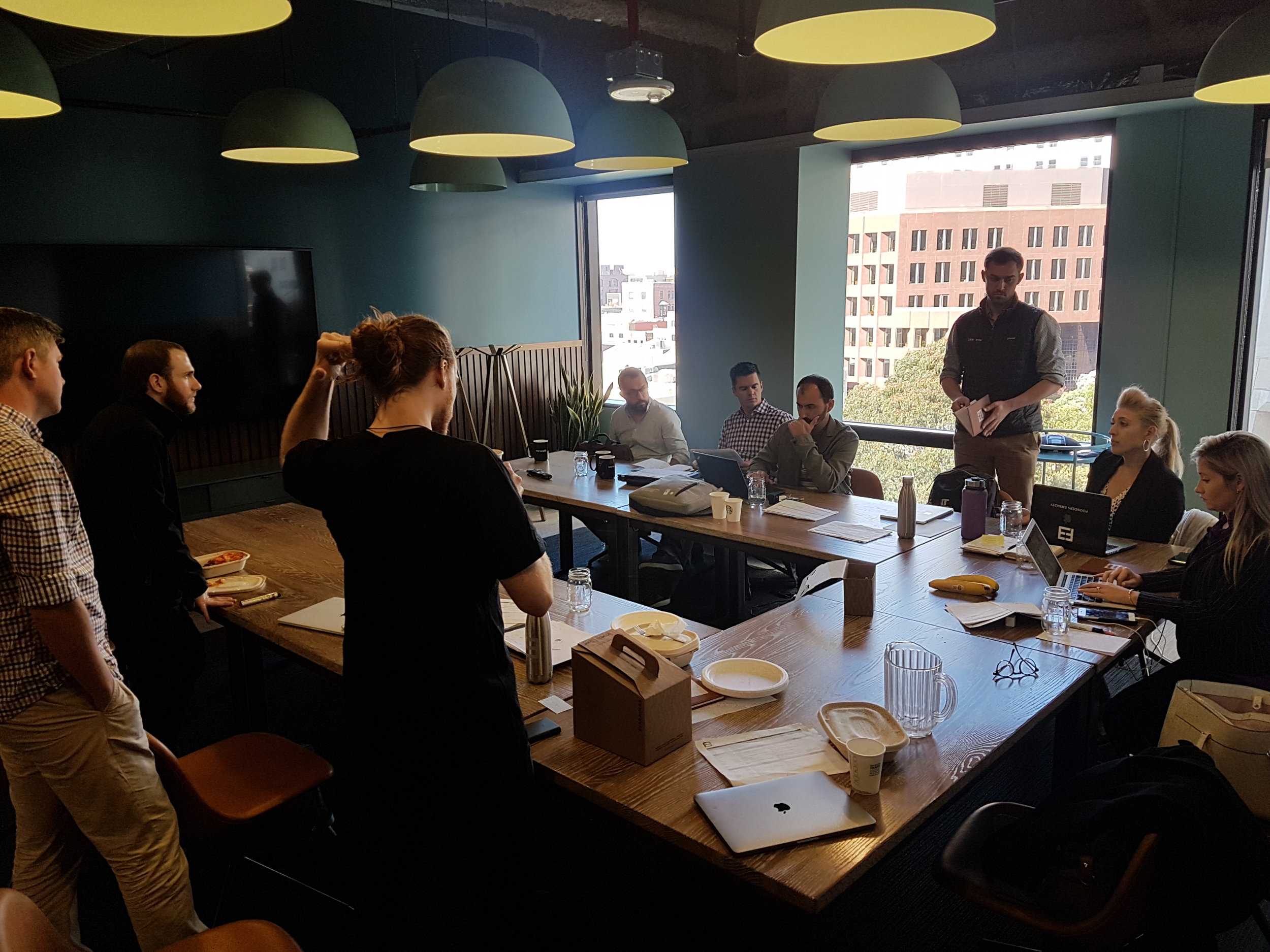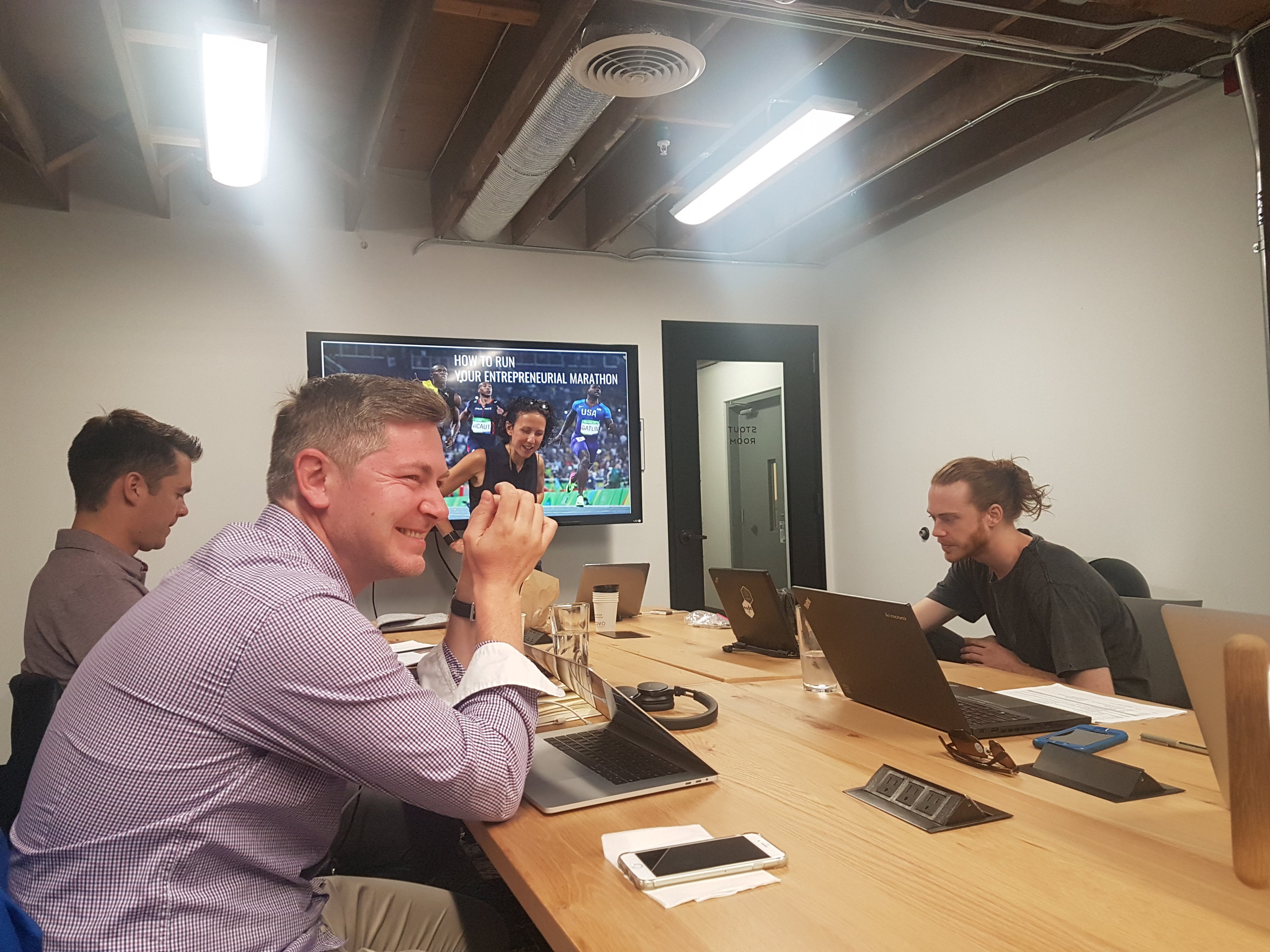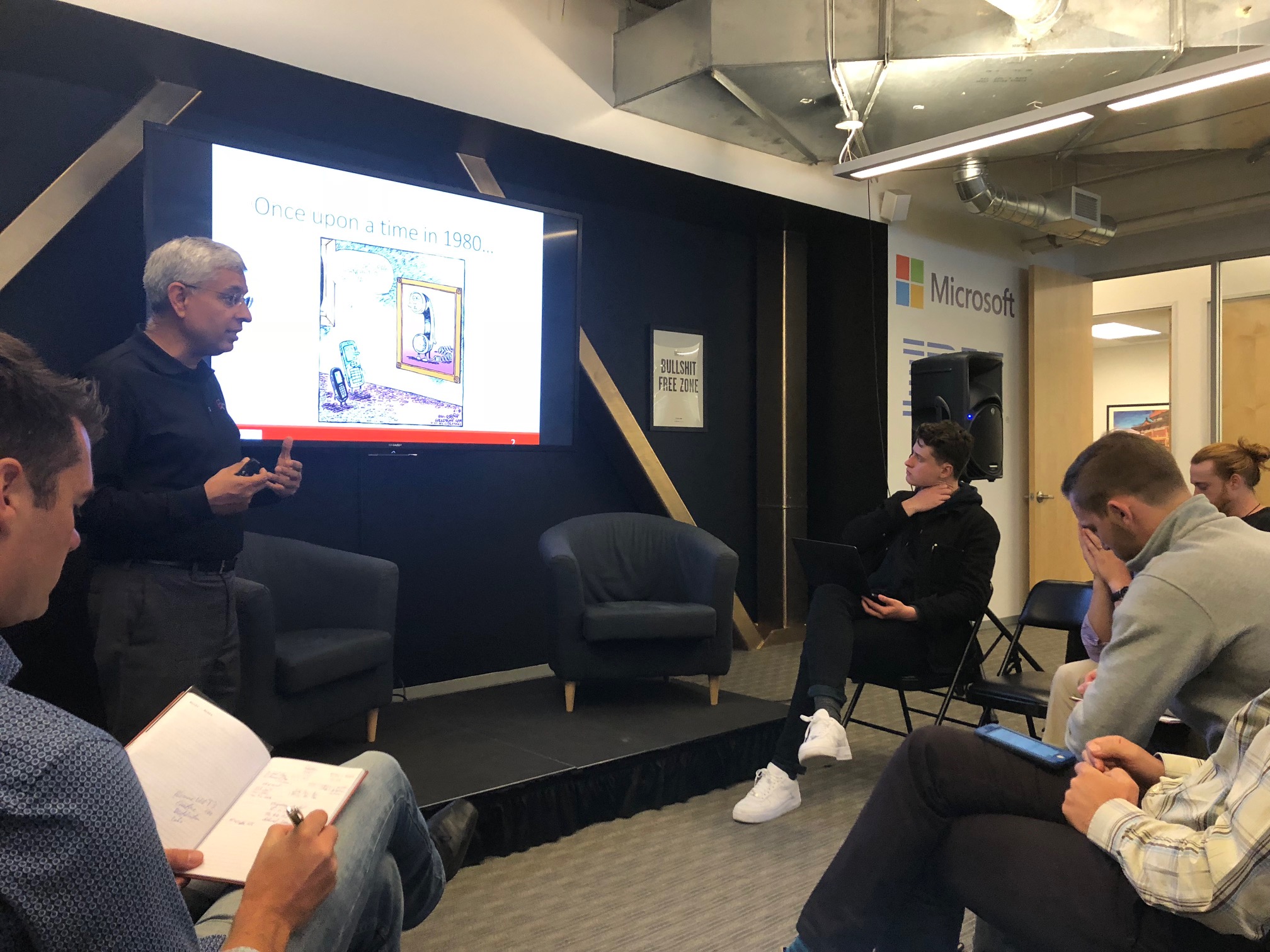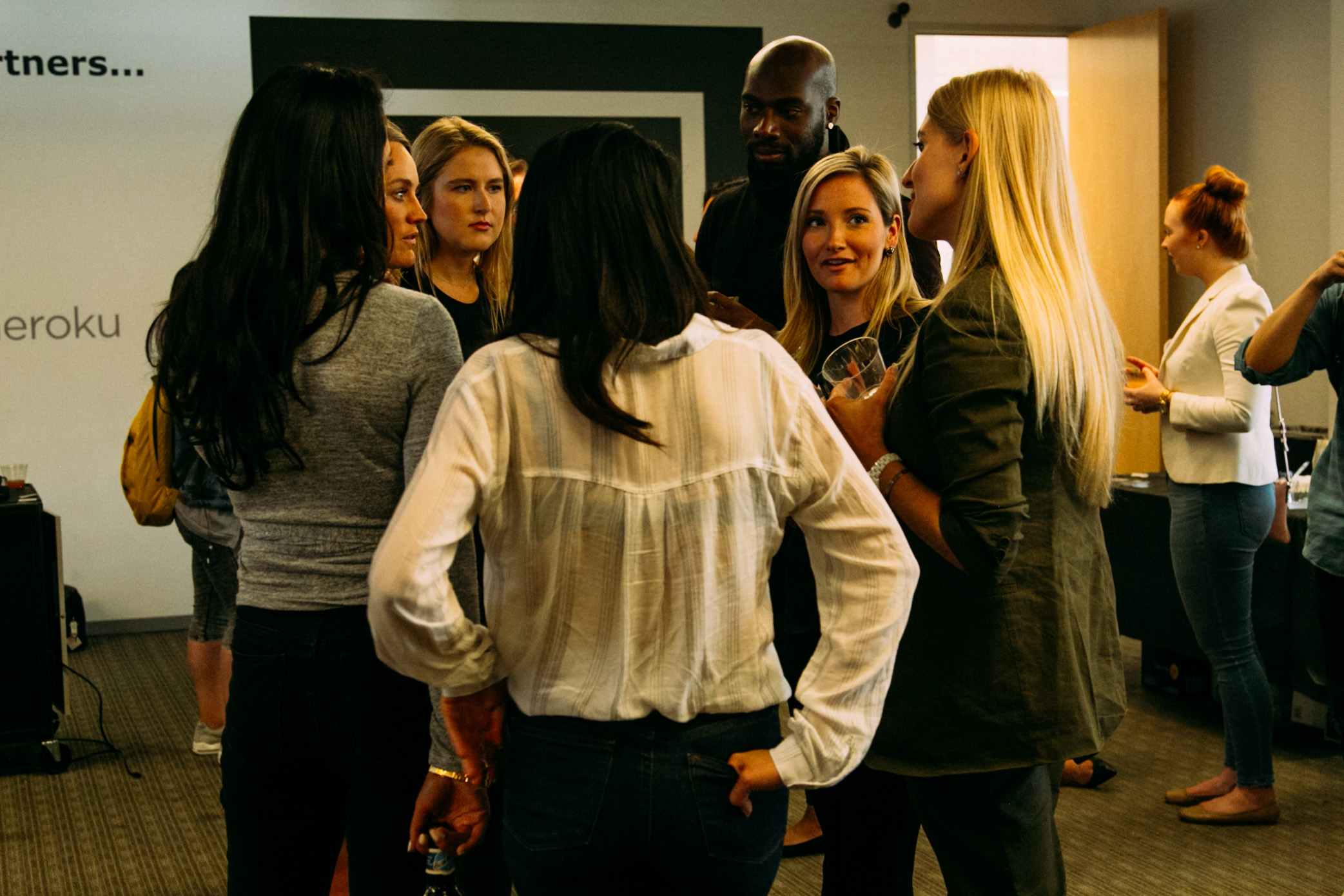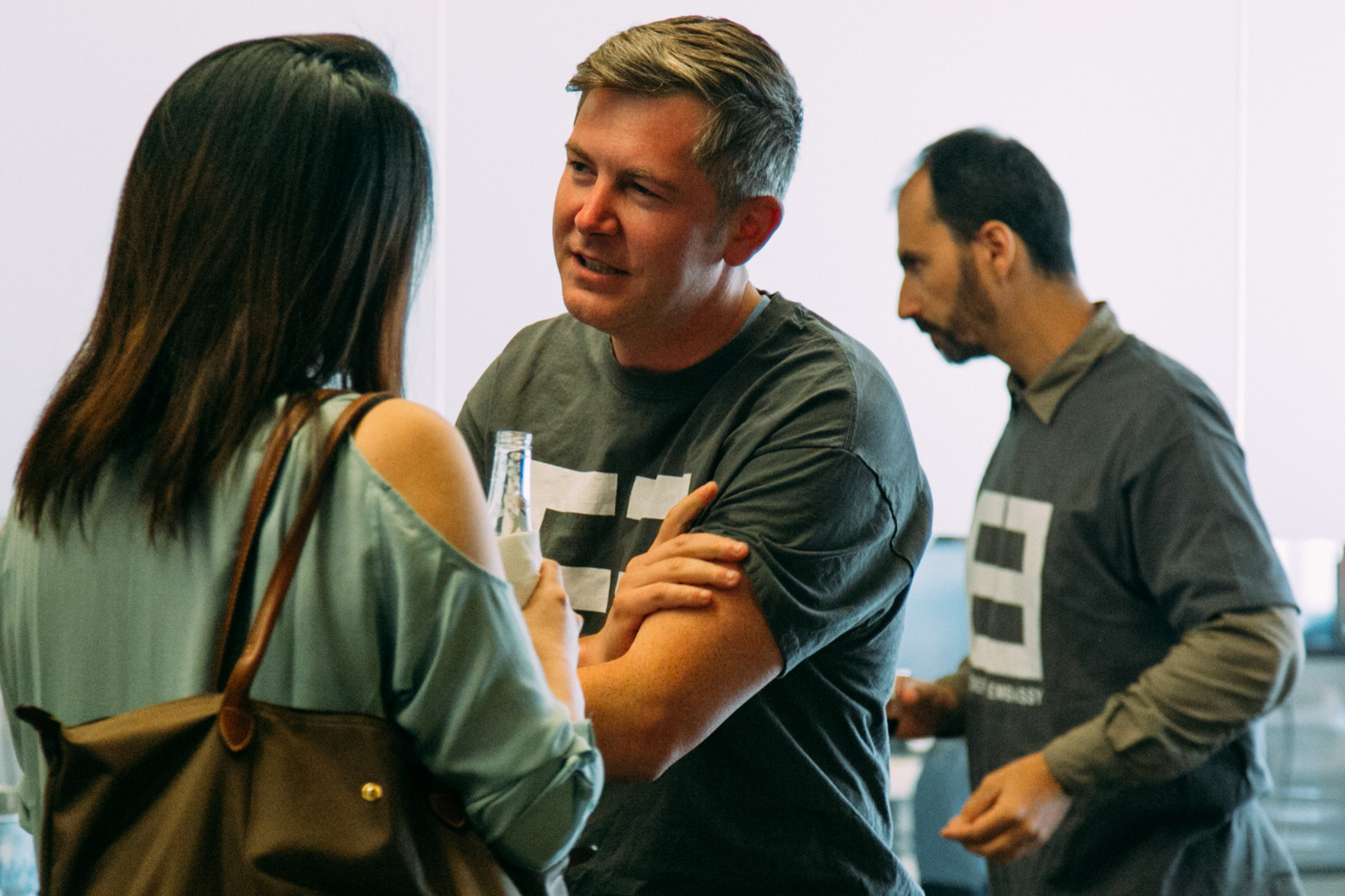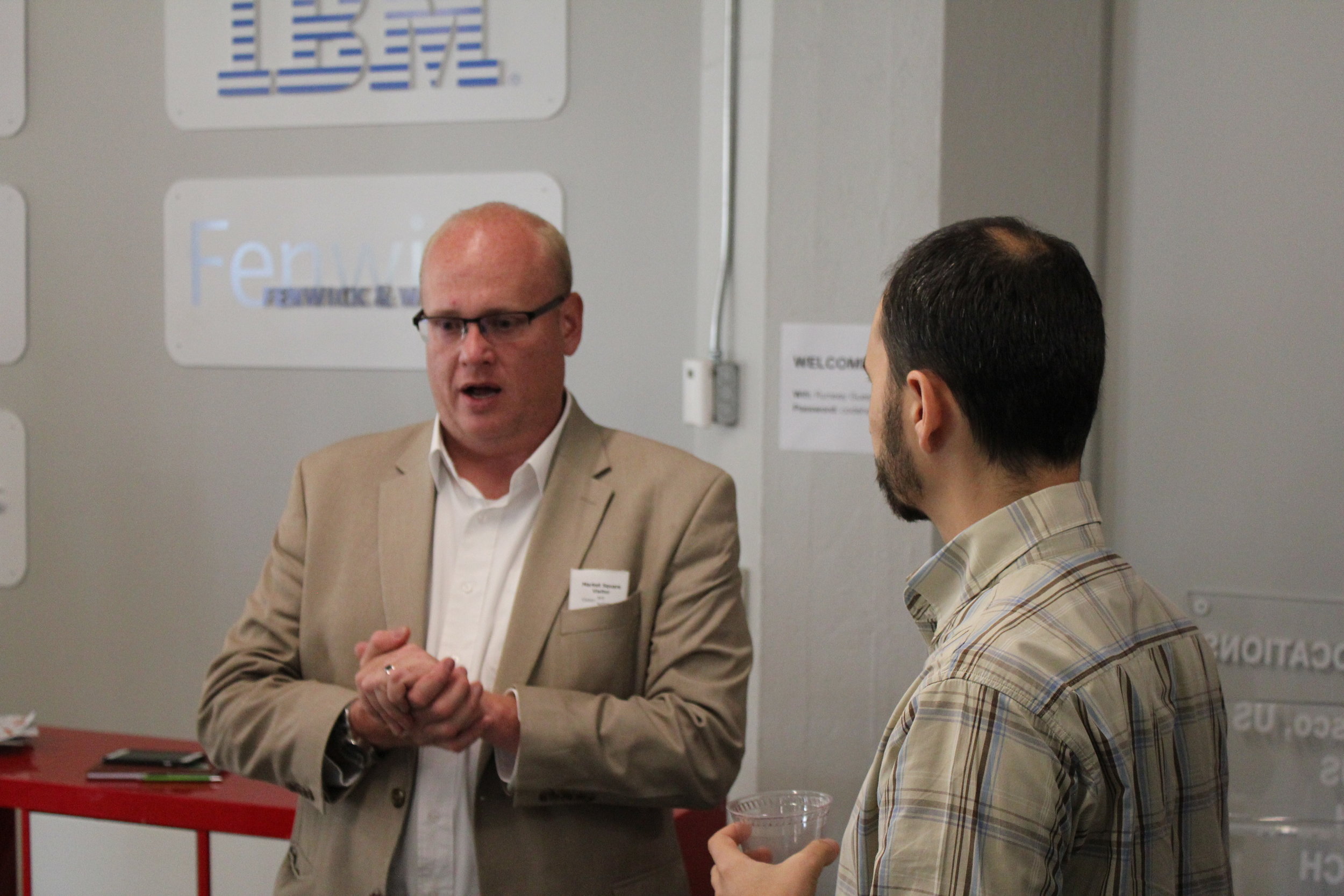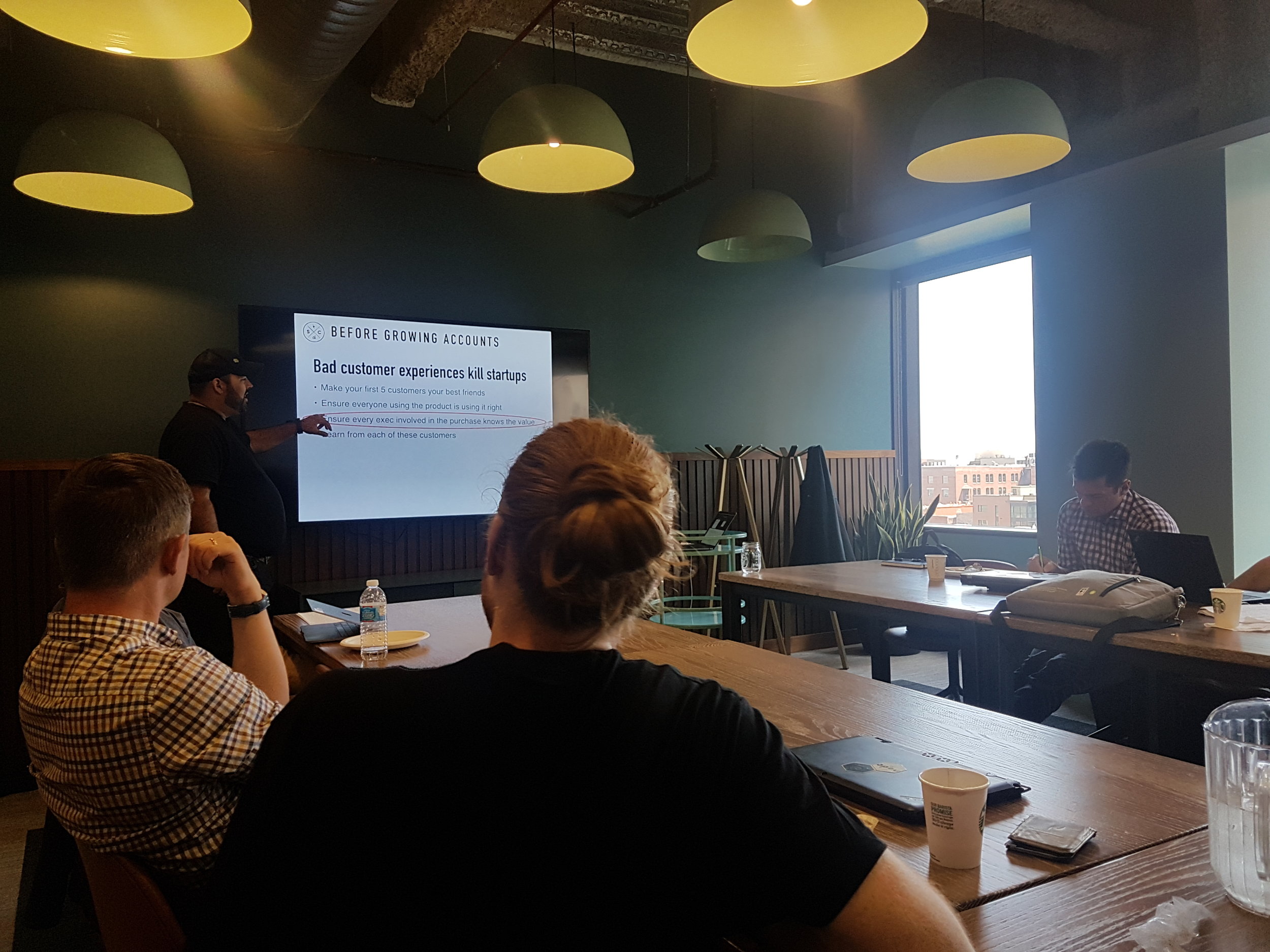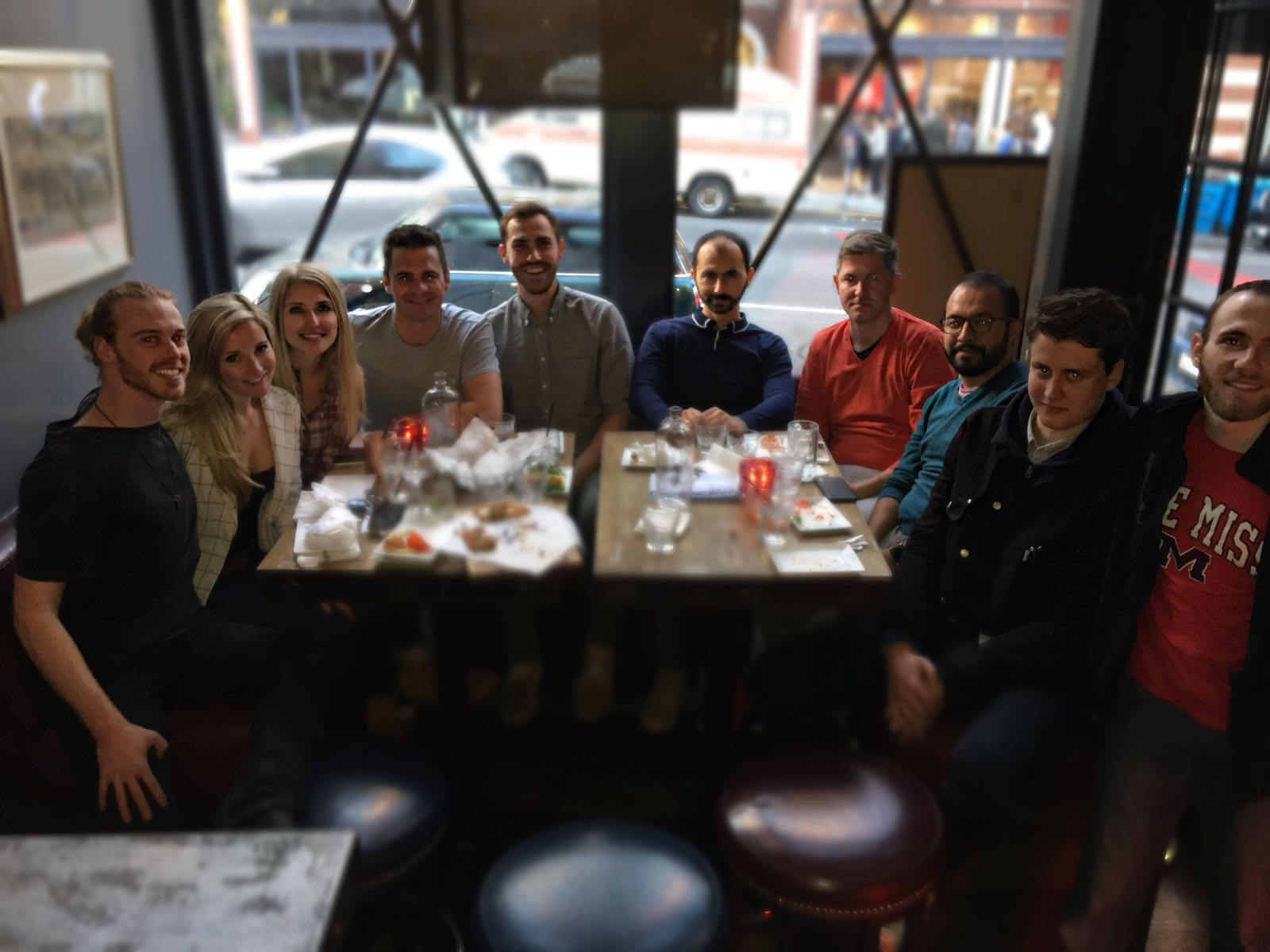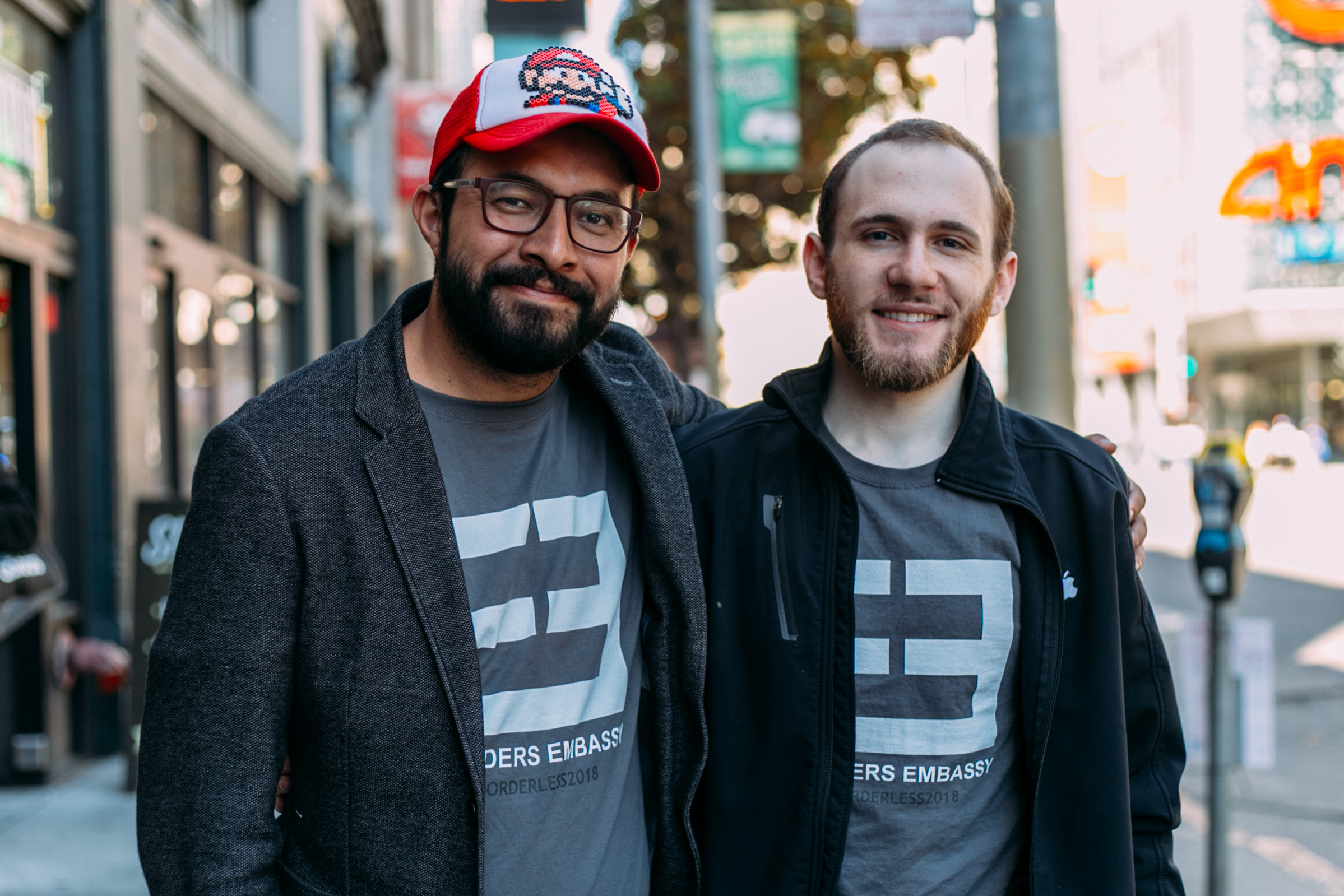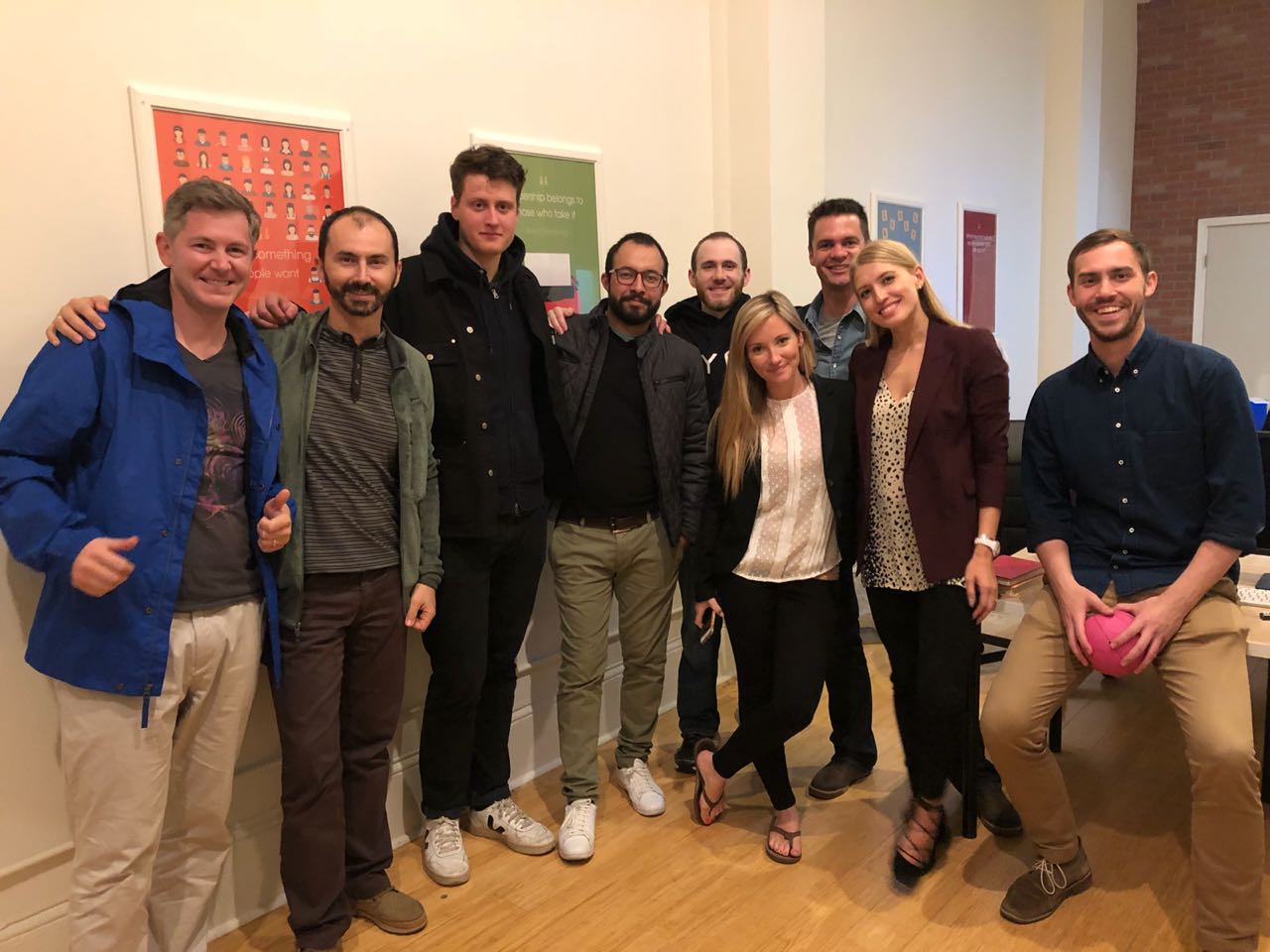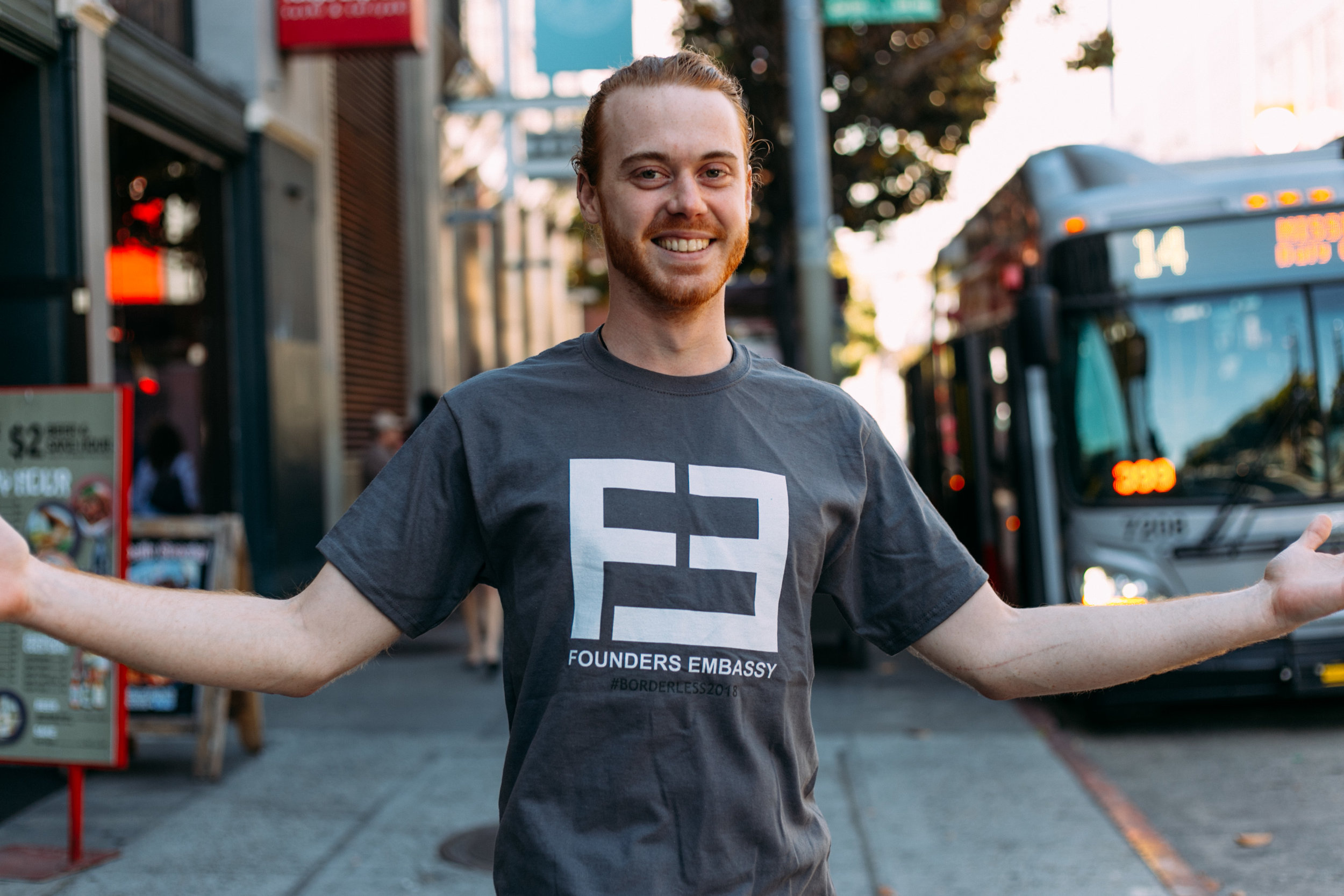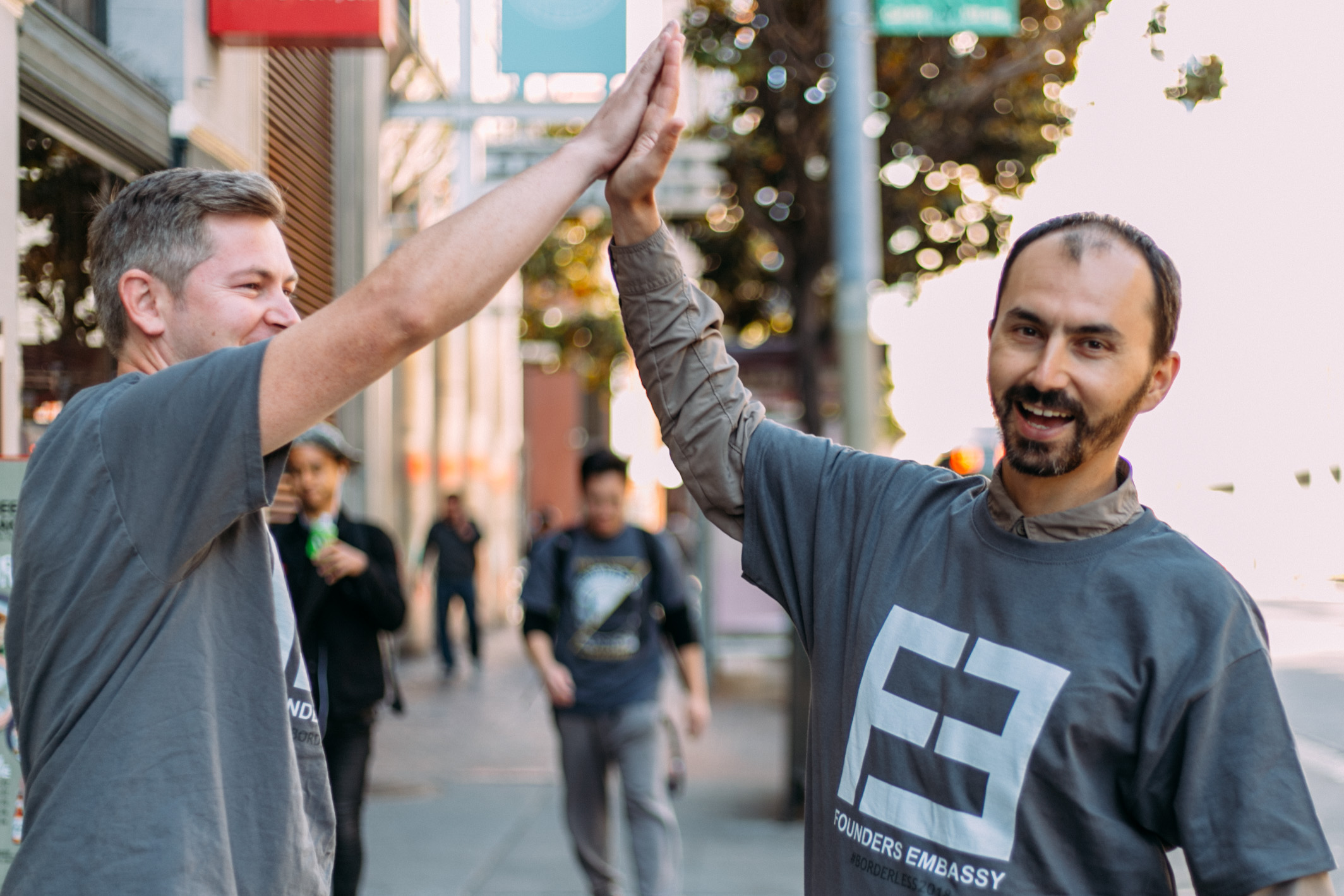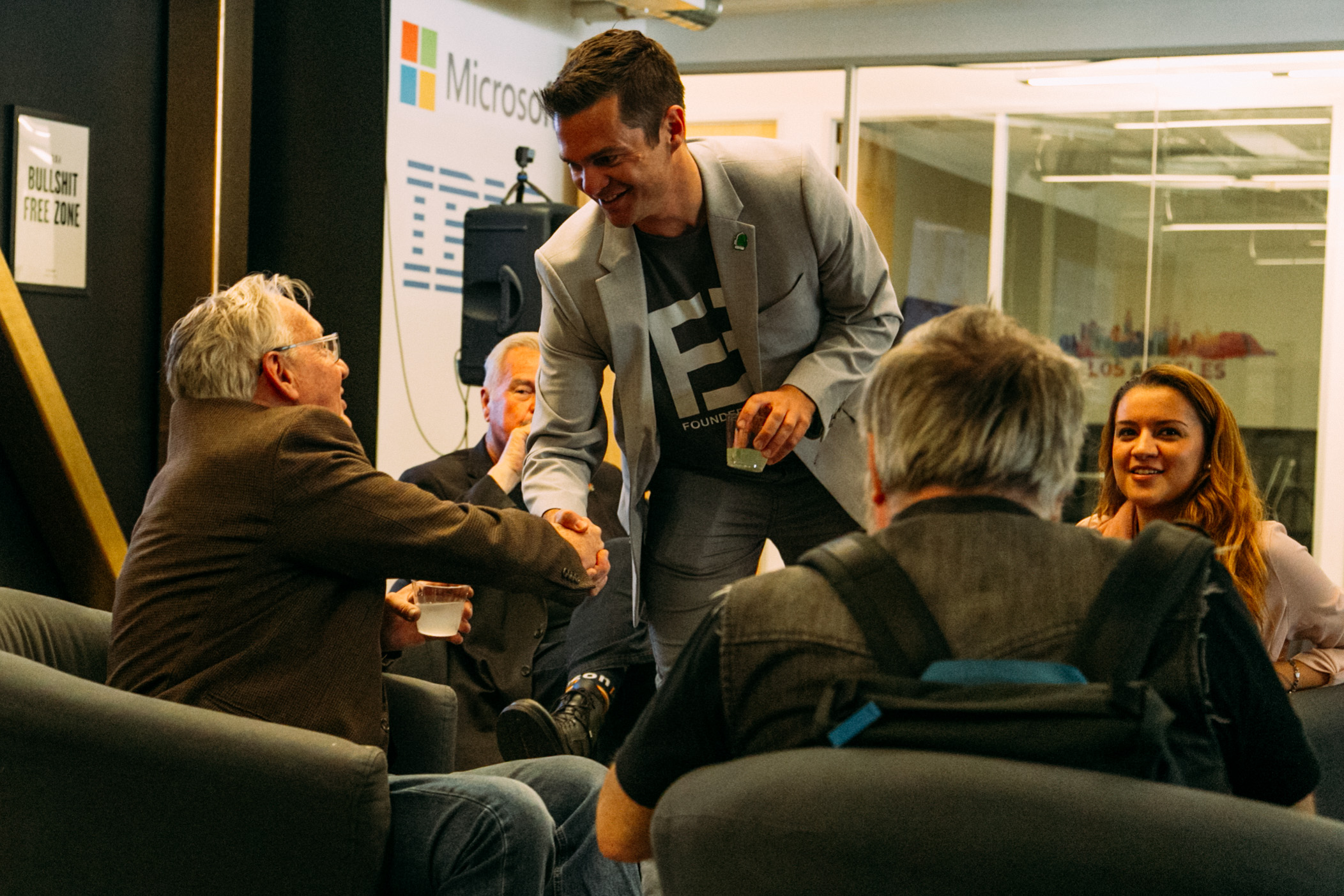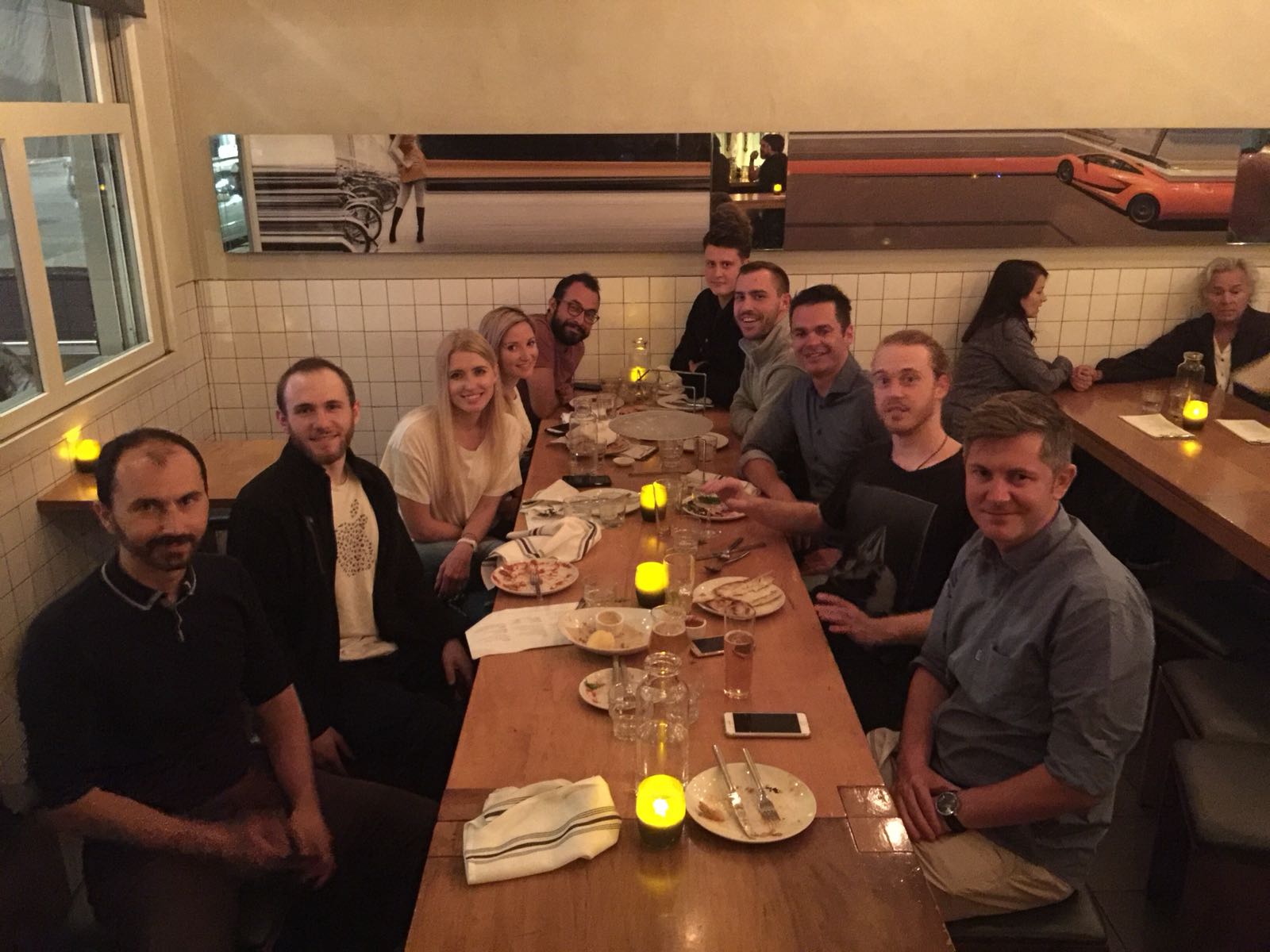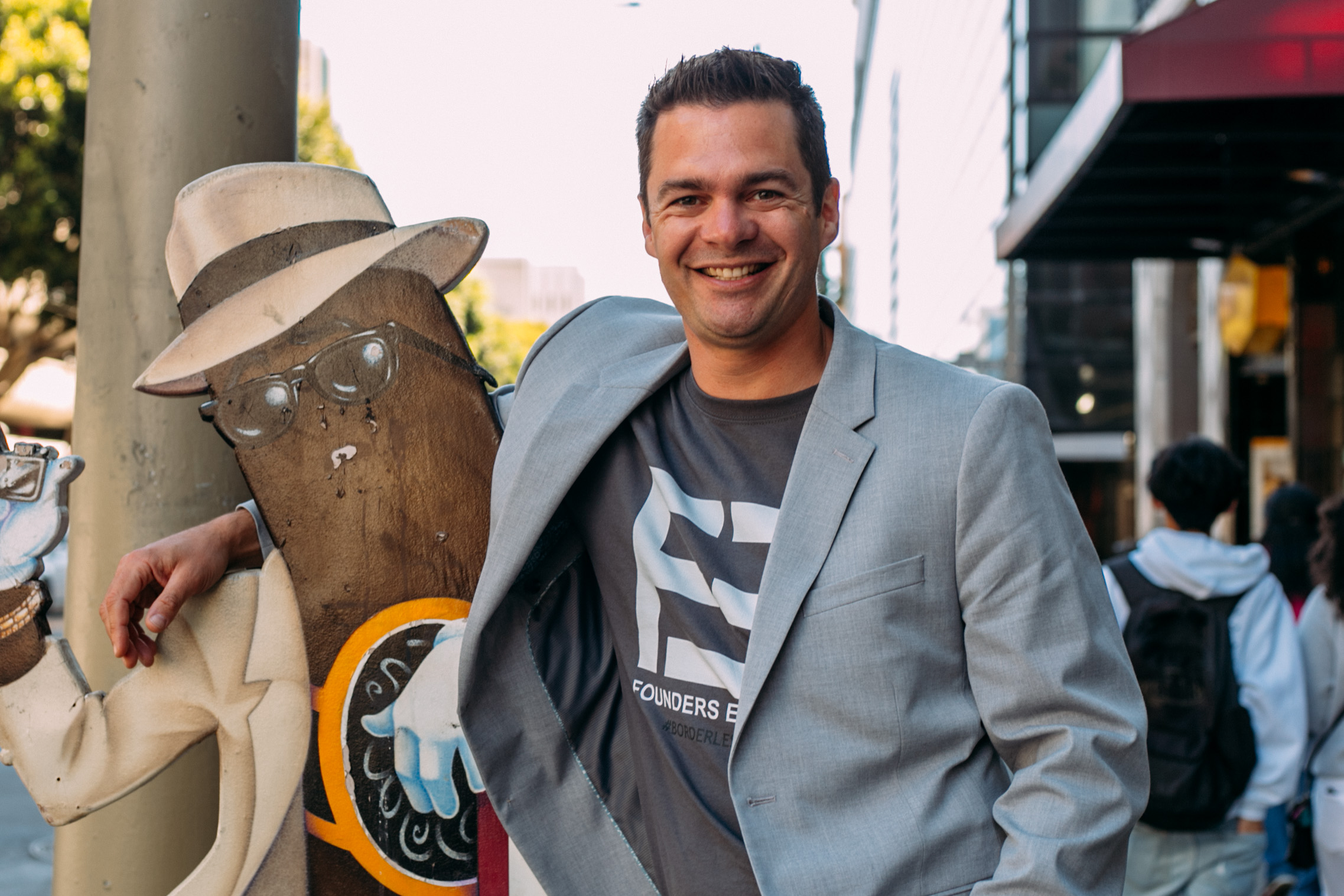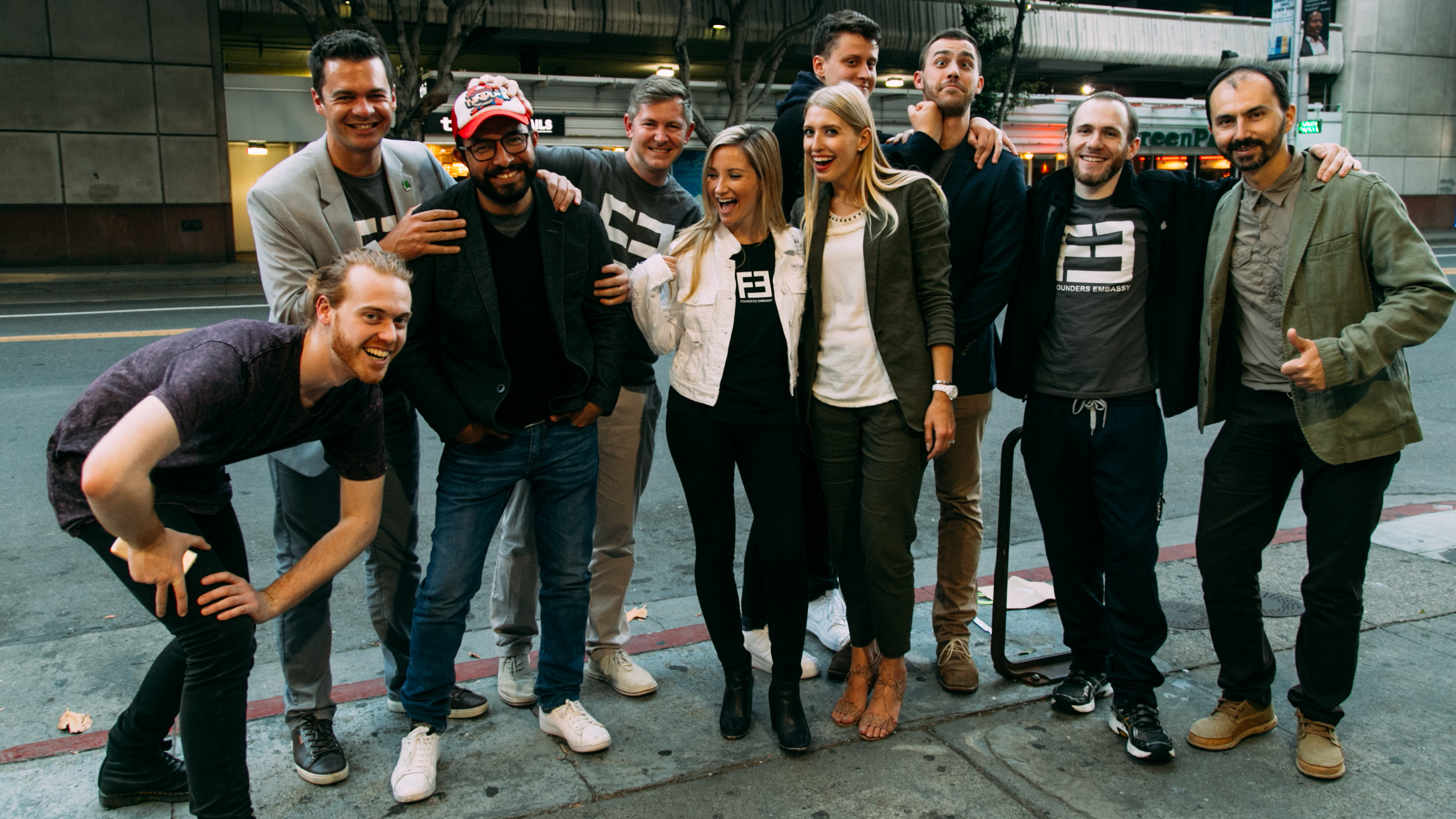Founders Embassy Accelerator: 14 Takeaways from the Summer 2018 Program
Knowledge is power, and knowledge from Silicon Valley is the kind of power that has the ability to equip international founders with the resources that can take their company to the next level of growth.
Several seasons a year, Founders Embassy selects and welcomes small classes of founders from diverse backgrounds to Silicon Valley for a rigorous two-week-long, bootcamp-style, equity-free acceleration program. The first class of five startups descended on San Francisco on May 30th, 2018, where they lived together under one roof, participated in workshops and round table discussions hosted by some of Silicon Valley’s brightest minds. Among the class were founders representing 7 countries – Australia, Mexico, Canada, Poland, Romania, UAE and the U.S.
We believe that by curating a network of experts, or “Thought Leaders”, many of whom have spent over 20 years in their fields, we can develop a curriculum that adds unprecedented value to our entrepreneurs by curating content specifically related to the needs of each founder in the class. While the standard topics are always covered, such as fundraising, marketing, sales, hiring, culture, and so forth, we also discuss, “how to act at networking events”, “how to ask for and handle introductions”, “how to find the right investors and partners for your company”, or “how to position yourself in Silicon Valley.”
Although there were countless takeaways from over 40 workshops, presentations, roundtable discussions, and fireside chats over the two-week program, these are the 14 that we feel are most relevant to international founders.
1. Think BIG
One of the most common themes we have seen in the last 3 years working with international entrepreneurs is a small mindset with respect to their company’s potential for growth. Before coming to Silicon Valley, ask yourself, “Is what I’m building applicable on a big enough scale to attract world class investors, talent, international customers, partners, and so forth?”
“VC’s are looking for Billion Dollar Visions. Think bigger!” – Pedro Sorrentino, Co-Founder and Managing Partner, ONEVC
2. Have a Damn Good Story
"Have a great origin story. It’s the “Why” of your entire narrative." – Nish Nadaraja, Branding Expert, Former Marketing and Brand Director, Yelp.com
"What was the ‘wow’ factor? This keeps customers coming back." – Pascale Diaine, Principal, Storm Ventures
3. Make Diversity a Core Cultural Value
Given a handful of very public recent events, it goes without saying that diversity should be taken into consideration early and often when building a company.
“Aside from looking at a diploma and factoring in diversity, you need to hire people you can trust…. It’s not about what people are saying to you, it’s about what people are saying behind your back.” – Matthew Yazzie, Director of Diversity and Inclusion Programs, Women 2.0
“Culture is built from day one.” – Steve Cadigan, Founder of Cadigan Talent Ventures, Former VP of Talent, LinkedIn
4. Venture Capital isn’t for Everyone
There are other forms of financial capital that are sometimes best suited for businesses depending on many factors. It’s important to understand that institutional investors are in the business of making returns. They’re not your mentors or your co-founders and they’re not going to solve all of your company’s problems.
If you only need $500K or $1M, don't just rush into taking VC money, it's expensive cash." – Scott Sorochak, General Partner, Blarney Ventures
Be sure you’re in a position to accept the cash and understand the terms you're expecting before you fundraise.
“At the end of the day, we are a financial product that needs to return money to our investors.” – Pedro Sorrentino, Co-Founder and Managing Partner, ONEVC
“It can be dangerous to raise too much money.” – Alex Farman-Farmaian, Sales, CEP, Carta (fka eShares)
5. Always Do Your Research
“Most Series A investors are looking for companies that have a high velocity toward $1M ARR.” – Pascale Diaine, Principal, Storm Ventures
Keep in mind that most investors in Silicon Valley know one another and they talk.
"Don’t send your deck to more than one Partner, they talk, do your homework." – Andy McLoughlin, Partner, Uncork Capital
Last, understand that many US investors may not be legally allowed to invest in international companies that haven’t established a Delaware Corp.
“VC are mostly investing in the US, because of their limited partnership agreements which may prohibit foreign investment.” – Marvin Liao, Partner, 500 Startups
Know the VC's bio and target them specifically.
“Fundraise with a speargun, not a net”. – Andy McLoughlin, Partner, Uncork Capital
6. Less is more
Be concise. A great way to see if you’re being concise, show a slide from your deck to someone for 3 seconds. If they don’t remember anything, change it. When cold emailing investors, keep your message short and sweet.
“Open an email with the ask, close it with a question.” – Pedro Sorrentino, Co-Founder and Managing partner, ONEVC
7. Build Relationships, Not Contact Lists
In Silicon Valley, almost anyone will take a first meeting with you. It’s the second meeting that’s much harder and more important. Your job in the first meeting is to get to the second. Networking isn’t about selling your product. It should be less transactional and more relationship-based.
"It's all about how you add value to other people. Find your personal value (skill set) and pitch it when networking...If I like you, I’ll open my network to you….A valuable contact is someone that you can actually call.” – Eric Quon-Lee, Director, Visa Performance Solutions
“Networking is an opportunity to show your enthusiasm.” – Barbara Meyer, HR Expert, Team Building Coach, NewTechWorld
8. Lose the Ego
Attitude is everything in Silicon Valley. Be authentic.
“The biggest enemy for an early entrepreneur is ego.” – Pascale Diaine, Principal, Storm Ventures
“Build the confidence to act without arrogance... and be honest, you don’t have to have the answer for everything.” – Pedro Sorrentino, Co-Founder and Managing Partner, ONEVC
9. Perfect the Pitch (Deck)
You should really have a few different versions of your pitch deck. Typically, you should have one that’s short and to the point which you send to people over email. These typically don’t have too much detailed information as the goal with this deck is to get the face-to-face meeting. Your goal for the first meeting is to get to the second one.
According to Pedro Sorrentino, Co-Founder and Managing Partner, ONEVC, your longer pitch deck should include the following:
- Problem
- Solution
- Why Now?
- Market Size (Addressable Revenue)
- Product
- Team
- Business Model
- Competition
- Defensibility
- Historical Financials
- Fundraising Round
- Use of Proceeds
(We often see international companies include an exit slide or prospects for acquisition. Don’t include this! Institutional investors want you to be so confident that your company’s only exit will mean a billion-dollar IPO for their portfolio.)
10. Become a “Cult-ure" Leader
“You want your customers to think of your brand as a cult, because they’ll do anything for you after that.” – Nish Nadaraja, Branding Expert, Former Marketing and Brand Director, Yelp.com
“Leadership is how well and how quickly you recover from mistakes.” – Steve Cadigan, Founder of Cadigan Talent Ventures, Former VP of Talent, LinkedIn
“People don’t do well when they don’t know what to do.” – Matthew Yazzie, Director of Diversity and Inclusion Programs, Women 2.0
11. Iterate
Prepare to pivot. It should go without saying but if something about your product isn’t working, it’s important to recognize the flaws and iterate, test, and repeat.
“You’re going to have to pivot but make sure you pivot into something you still love to do.” – Eric Quon-Lee, Director, Visa Performance Solutions
12. Find Product-Market Fit
Product-market fit may be one of the most important objectives for any startup, no matter where it is based at, yet it is one of the least understood concepts. Before coming to Silicon Valley, international startups should be able to demonstrate that they’ve found product-market fit in their home markets. Better yet, it should be apparent that the product will translate easily into the U.S. market as well.
“US investors want to see at least 40% of the business domestically.” – Marvin Liao, Partner, 500 Startups
“Products and markets may be unique, but the path to Product-Market Fit is not." – Sean Sheppard, Founding Partner, GrowthX
13. Adopt a Growth Mindset
No matter what’s going on in the business at any given time, growth should be a priority and, when pitching, the potential for growth should be evident.
“What gets VC’s attention is growth… month-over-month growth.” – Pascale Diaine, Principal, Storm Ventures
“You want to tell investors a story that is realistic & mind blowing.” – Andy McLoughlin, Partner, Uncork Capital
People/Talent is the main driver of growth.
“In Silicon Valley, if people are not thrilled about what they do, they will leave.” – Steve Cadigan, Founder of Cadigan Talent Ventures, Former VP of Talent, LinkedIn
Ensure that your sales process is repeatable and recorded somewhere.
“As soon as institutional investors see a repeatable sales process, they’re going to be thinking about finding Product/Market fit.” – Pascale Diaine, Principal, Storm Ventures
“Traction speaks louder than words.” – Sean Sheppard, Founding Partner, GrowthX
14. Be Obsessed
Being a founder is probably one of the most difficult decisions any individual can ever make. It probably goes without saying that you should be completely obsessed with the startup you're building, but for many founders burnout can become a serious detriment to a growing company. Whether you're actively networking, meeting investors, or simply having a casual conversation about your startup, it's important that your passion is palpable. Some say that many startups fail because their founders "either run out of money or enthusiasm". There will be countless roadblocks and storms in the entrepreneurial journey - make sure what you're building is something you inherently love and believe in so you can weather them gracefully.
"It may be the accelerator's job to get you in front of investors, but it's your job to "wow" them!" – Andy McLoughlin, Partner, Uncork Capital
After curating over 50 events together for international entrepreneurs, we have learned that their most important takeaway isn't the mentorship or thought leadership they received, or even their investor meetings. Undeniably, the most valuable takeaway for international founders has been the community they form within their class and the network that they've begun to build here in the most innovative city on earth.
special acknowledgements
It is with sincere gratitude that we thank the incredible individuals and companies who have contributed to the Summer 2018 Founders Embassy Program.
To our partners and co-working spaces - thank you for opening up your communities and inspiring venues to our class: Runway, Bespoke, WeWork, Covo, 500 Startups
To our experts and thought leaders, we're so grateful for your knowledge, your generous time, and incredible feedback for our founders:
Pascale Diaine, Nakul Mandan, Eric Quon-Lee, Pedro Sorrentino, Crystal Huang, Andy McLoughlin, Lindsey Mignano, Manan Mehta, Brian Ma, Josh Constine, Matt Howland, Nish Nadaraja, Homan Yuen, Jacob Mullins, Siri Srinivas, Manoj Verma, Ali Vahabzadeh, Barbara Meyer, Duke Chung, Henri Deshays, Sean Sheppard, Alex Farman-Farmaian, Chris Goudy, Matthew Yazzie, Robb Miller, Steve Cadigan, Louise Fritjofsson, J. Ryan Williams, Mike Rogers, Ali Benslimane, Sandy Khaund, Marvin Liao, Ashmeet Sidana, Scott Sorochak, Jim Mayock, Brit Summerill
Thank you to our impressive selection committee (who will remain anonymous) - we couldn't have done it without you.
If you want to help us build a more inclusive Silicon Valley, apply to become an official Founders Embassy Thought Leader here.
Applications for the next Founders embassy program are open!
If you fit the criteria below, we encourage you to apply! Select founders will be contacted and an interview will be scheduled before applications are sent to the Founders Embassy selection committee for final review.
- At least one of the founders must be internationally-based or of international descent. Individuals who have immigrated and are based in the US are also invited to apply.
- The startup must be in the post-seed funded stage. This typically means having raised what would be considered a U.S. seed round.
- The company must have global ambitions, though it is certainly not required for them to move to Silicon Valley or other parts of the U.S. in order to qualify.
- Month-over-month growth should exceed 10% - whether this is active daily users, subscriptions, revenue, or another metric used to describe traction.
Founders Embassy is the first female-led, equity-free, bootcamp-style accelerator focused exclusively on helping induct international and immigrant entrepreneurs into the Silicon Valley ecosystem. The company’s mission is to democratize Silicon Valley for the world’s most talented entrepreneurs that lack the privilege of insider connections and resources.
